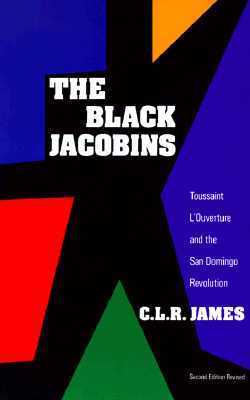
The Wretched of the Earth
Book Description
Amidst the chaos of revolution and the fierce struggle for liberation, a powerful voice emerges, dissecting the psychological scars of colonialism and the urgent call for decolonization. Frantz Fanon boldly explores the realities of oppression, the fight for identity, and the transformative power of violence as a catalyst for change. Each page crackles with urgency, illuminating the brutal complexities of the oppressed seeking their rightful place in a world designed to marginalize them. As tensions rise and nations clash, what price will be paid for true freedom, and can any society truly heal from the wounds of its past?
Quick Book Summary
"The Wretched of the Earth" by Frantz Fanon is a profound analysis of the dehumanizing impact of colonialism and the struggles of colonized peoples to reclaim their identity and autonomy. Fanon examines the psychological and social ramifications of colonial domination, arguing that colonized nations can only truly liberate themselves through revolutionary violence. He explores how colonial power structures create internalized oppression, cause deep divisions within societies, and drive the emergence of black consciousness and solidarity. The book outlines the challenges of post-independence nation-building and the importance of cultural reclamation and unity. Fanon's urgent and passionate prose provides a radical blueprint for decolonization, advocating not only political emancipation but also the recovery of dignity and humanity by the formerly oppressed.
Summary of Key Ideas
Table of Contents
Psychological Impact of Colonialism
Fanon begins by diagnosing the psychological effects of colonialism on both the colonizer and the colonized. He describes how colonial domination instills a sense of inferiority, dependency, and self-contempt in the oppressed, leading to widespread alienation. The colonizers establish a world rigidly divided along racial and social lines, perpetuating the myth of the colonizer as superior and the colonized as lesser beings. This dynamic not only exploits material resources but also warps the self-image and ambitions of colonized people, resulting in fractured identities and internalized racism.
Violence and Revolutionary Change
Central to Fanon’s thesis is the argument that violence is an unavoidable and cathartic force in the process of decolonization. He asserts that, because colonialism itself is rooted in violence, the struggle for liberation necessarily requires a violent upheaval of the existing system. This violence is not gratuitous but plays a cleansing role in helping the oppressed reclaim agency and self-worth. Through violent resistance, Fanon contends, the colonized can overcome passivity, challenge the legitimacy of the colonial order, and ignite a collective sense of purpose.
Identity, Culture, and National Consciousness
Fanon gives special attention to the role of culture, language, and collective identity in the liberation struggle. He critiques both the imitation of European models and the idealization of pre-colonial culture, urging colonized peoples to develop political and cultural consciousness rooted in their specific historical circumstances. The formation of a genuine national culture, he posits, is essential for unifying disparate groups and fostering solidarity. This collective self-assertion is a pivotal element in overcoming the psychological legacy of colonial domination.
The Pitfalls of Post-Independence Leadership
After independence is achieved, Fanon warns that former colonized nations are often threatened by internal divisions, corruption, and the emergence of new elites who perpetuate the cycle of oppression. He analyzes how the national bourgeoisie—rather than serving the people’s interests—often mimic colonial structures for their benefit. Fanon advocates for revolutionary leadership that remains accountable to the masses, prioritizes social justice, and redistributes resources to avoid replicating colonial patterns of exploitation.
Pathways to Genuine Liberation
In his closing analysis, Fanon calls for a rigorous, ongoing process of social, economic, and psychological transformation. He emphasizes the need for inclusive politics rooted in popular participation and urges post-colonial societies to invent new ways of being, unburdened by past hierarchies. True liberation, he asserts, is achieved not only through political sovereignty but through a collective rebuilding of society’s values, cultural identity, and economic structures. Through passionate critique and visionary hope, Fanon challenges both the oppressed and their leaders to forge paths toward dignity, equality, and authentic freedom.
Download This Summary
Get a free PDF of this summary instantly — no email required.





